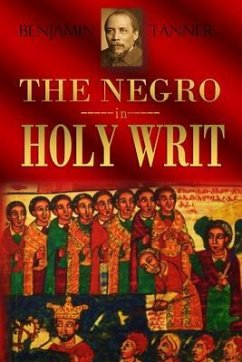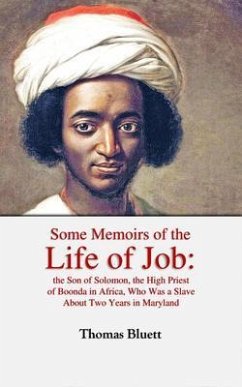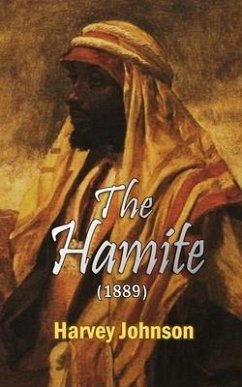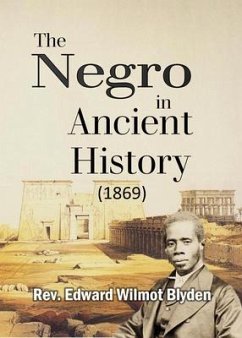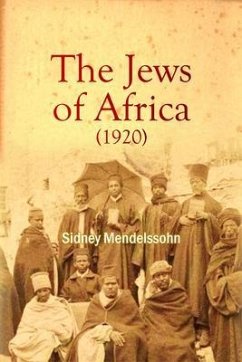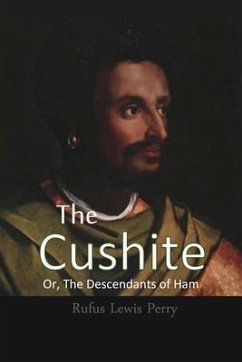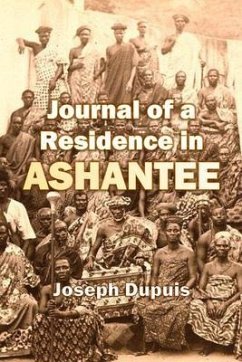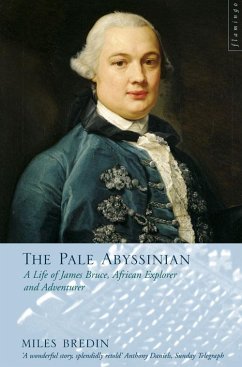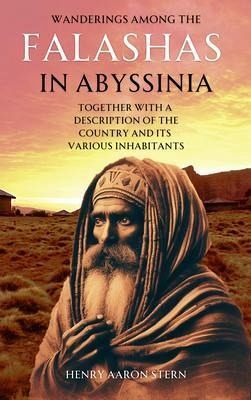
Wanderings Among the Falashas in Abyssinia (eBook, ePUB)
Together with a Description of the Country and Its Various Inhabitants

PAYBACK Punkte
2 °P sammeln!
"We pronounce it the most interesting book we have ever met with." -Kingston's Magazine, 1863"Henry Aaron Stern...was described as the most courageous missionary...as a Jew by birth Stern was deemed in a far better position to judge the many characteristics and customs of the Falashas than other foreign observers." - From Falashas to Ethiopian Jews (2017)"Stern...cannot escape a major share of the responsibility for the situation which led to...the costly military expedition...later mounted in order to free him and others from imprisonment." -The Falashas: A Short History of the Ethiopian (201...
"We pronounce it the most interesting book we have ever met with." -Kingston's Magazine, 1863
"Henry Aaron Stern...was described as the most courageous missionary...as a Jew by birth Stern was deemed in a far better position to judge the many characteristics and customs of the Falashas than other foreign observers." - From Falashas to Ethiopian Jews (2017)
"Stern...cannot escape a major share of the responsibility for the situation which led to...the costly military expedition...later mounted in order to free him and others from imprisonment." -The Falashas: A Short History of the Ethiopian (2012)
"The Jewish monks showed great dislike to Mr. Stern and his work, for they knew well that if the Falashas followed his instructions, their occupation would be gone." - Biography of the Rev. Henry Aaron Stern (2012)
"Missionary Stern had a very simple method of persuasion. He would approach Ethiopian Jews and tell them about his Jewish past...the king...was furious...ordered that Stern be caught and flogged." -The Journey to Jerusalem (2011)
Were Jews of Ethiopia, knowns Black Hebrews or Black Israelites, lost descendants of King Solomon and the Queen of Sheba?
Rev. Henry A. Stern (1820 - 1885) arrived in Abyssinia in the early part of 1860, as the agent of the London Society for Promoting Christianity among the Jews, for the purpose of establishing a mission among the Falashas or native Israelites.
On Mr. Stein's return from Abyssinia he published in London (in 1862) a book entitled "Wanderings among the Falashas in Abyssinia." It introduces us to scenes and events strange and startling, and to persons entirely unheard of before.
So uncertain and complex had been the accounts which from time to time had reached Europe concerning the origin, habits, and religious belief of this remarkable people, that it needed personal inquiry and observation in order to arrive at just and satisfactory conclusions concerning them. That they professed to be jews, and were in the habit of observing many Jewish ceremonies, had been well known. But the evidence on which their claims rested, and the extent to which their practices coincided with those enjoined in the Levitical Law, was the subject still of considerable uncertainty.
It was part of Mr. Stern's duty to endeavour to arrange and reduce to order this tangled skein of mingled truth and fable, and to elucidate the facts which would justify his mission being accepted, as one essentially to "the lost sheep of the house of Israel."
According to their own tradition, and the concurrent testimony of native Christian writers, they came to Ethiopia in the reign of Maqueda, the Queen of Sheba. After a lengthened sojourn at Jerusalem, the queen returned to her own dominions, laden with munificent presents, and, what greatly enhanced her happiness, with a youthful heir and prince, in the person of her son Menilek.
Other theories propounded by Europeans for the origins of the Falashas included:
. When Solomon's fleet made the tour of the Red Sea, some Jewish adventurers, or traders, settled in Ethiopia.
. Some of the Jews who fled into Egypt at the time of the Babylonian Captivity (B.C. 586) sailed up the Nile and established themselves in the province of Kwara, subsequently extending into Abyssinia.
. Jews fled into Abyssinia after the destruction of Jerusalem (A.D. 70).
. The Falashas are Jews by religion only, and not by descent.
"Henry Aaron Stern...was described as the most courageous missionary...as a Jew by birth Stern was deemed in a far better position to judge the many characteristics and customs of the Falashas than other foreign observers." - From Falashas to Ethiopian Jews (2017)
"Stern...cannot escape a major share of the responsibility for the situation which led to...the costly military expedition...later mounted in order to free him and others from imprisonment." -The Falashas: A Short History of the Ethiopian (2012)
"The Jewish monks showed great dislike to Mr. Stern and his work, for they knew well that if the Falashas followed his instructions, their occupation would be gone." - Biography of the Rev. Henry Aaron Stern (2012)
"Missionary Stern had a very simple method of persuasion. He would approach Ethiopian Jews and tell them about his Jewish past...the king...was furious...ordered that Stern be caught and flogged." -The Journey to Jerusalem (2011)
Were Jews of Ethiopia, knowns Black Hebrews or Black Israelites, lost descendants of King Solomon and the Queen of Sheba?
Rev. Henry A. Stern (1820 - 1885) arrived in Abyssinia in the early part of 1860, as the agent of the London Society for Promoting Christianity among the Jews, for the purpose of establishing a mission among the Falashas or native Israelites.
On Mr. Stein's return from Abyssinia he published in London (in 1862) a book entitled "Wanderings among the Falashas in Abyssinia." It introduces us to scenes and events strange and startling, and to persons entirely unheard of before.
So uncertain and complex had been the accounts which from time to time had reached Europe concerning the origin, habits, and religious belief of this remarkable people, that it needed personal inquiry and observation in order to arrive at just and satisfactory conclusions concerning them. That they professed to be jews, and were in the habit of observing many Jewish ceremonies, had been well known. But the evidence on which their claims rested, and the extent to which their practices coincided with those enjoined in the Levitical Law, was the subject still of considerable uncertainty.
It was part of Mr. Stern's duty to endeavour to arrange and reduce to order this tangled skein of mingled truth and fable, and to elucidate the facts which would justify his mission being accepted, as one essentially to "the lost sheep of the house of Israel."
According to their own tradition, and the concurrent testimony of native Christian writers, they came to Ethiopia in the reign of Maqueda, the Queen of Sheba. After a lengthened sojourn at Jerusalem, the queen returned to her own dominions, laden with munificent presents, and, what greatly enhanced her happiness, with a youthful heir and prince, in the person of her son Menilek.
Other theories propounded by Europeans for the origins of the Falashas included:
. When Solomon's fleet made the tour of the Red Sea, some Jewish adventurers, or traders, settled in Ethiopia.
. Some of the Jews who fled into Egypt at the time of the Babylonian Captivity (B.C. 586) sailed up the Nile and established themselves in the province of Kwara, subsequently extending into Abyssinia.
. Jews fled into Abyssinia after the destruction of Jerusalem (A.D. 70).
. The Falashas are Jews by religion only, and not by descent.
Dieser Download kann aus rechtlichen Gründen nur mit Rechnungsadresse in A, D ausgeliefert werden.






